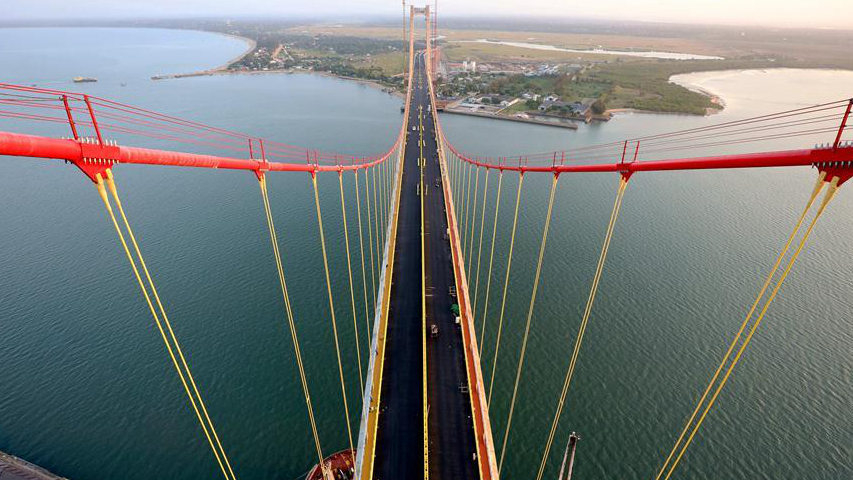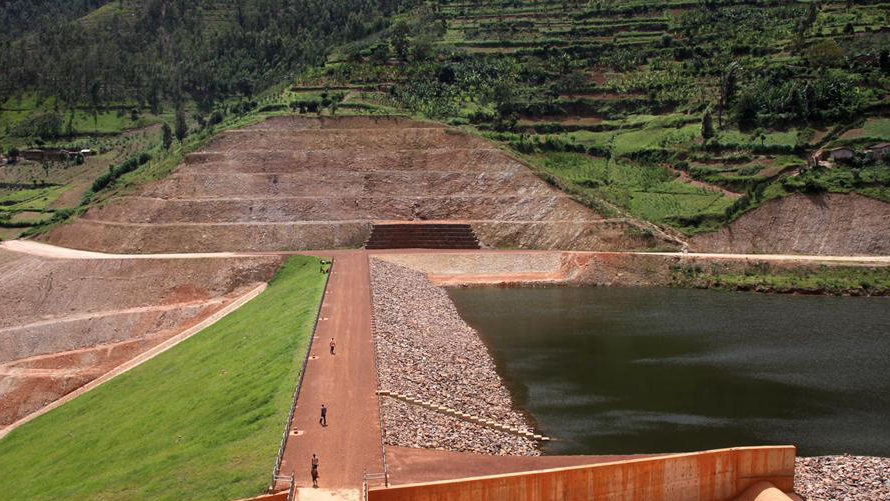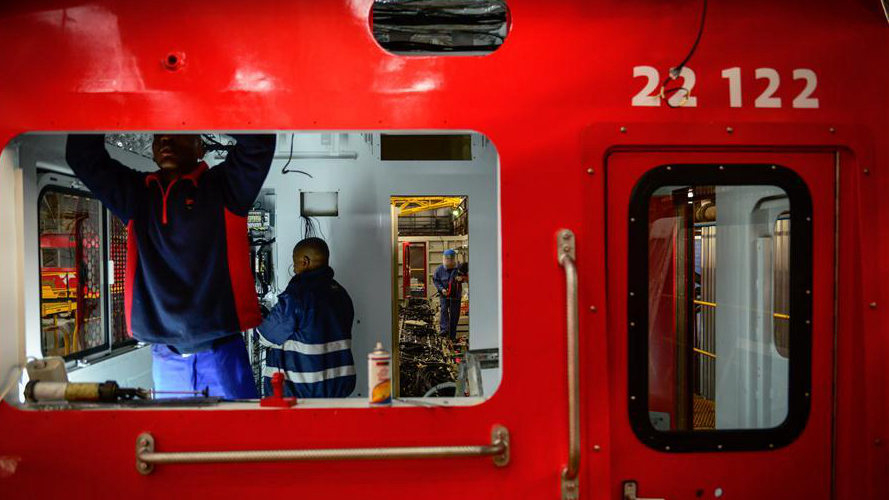
Opinions
17:44, 28-Jul-2018
Opinion: The BRICS need better coordination and cooperation in Africa
Updated
17:35, 31-Jul-2018
Yang Zhiguang

Editor's note: Yang Zhiguang is an assistant research fellow at the African Institute under China Institutes of Contemporary International Relations. The article reflects the author's opinion, and not necessarily the views of CGTN.
From July 25 to 27, the 10th BRICS Summit was held in South Africa’s City of Gold, Johannesburg.
It is the second time for South Africa to assume the role as the rotating chair of the BRICS, following its formal inclusion into the bloc in 2011 and first hosting the BRICS in 2013.
Africa as a priority
Africa has always been one of the BRICS’ focuses, especially since the 2013 BRICS Durban Summit which saw South Africa initiate the bloc’s first regional outreach, the BRICS-Africa Dialogue, on the margins of the summit. Pushing the BRICS to get involved in Africa’s development discourse is one pillar of South Africa’s foreign policy.

Photo taken on Feb. 16, 2018 shows a view of Muyanza Dam built by China Geo-Engineering Corporation (CGC) in Rulindo District, Northern Province of Rwanda. /Xinhua News Agency
Photo taken on Feb. 16, 2018 shows a view of Muyanza Dam built by China Geo-Engineering Corporation (CGC) in Rulindo District, Northern Province of Rwanda. /Xinhua News Agency
Through putting together the dialogue, Africa’s most developed economy intends to extend the benefits of its BRICS participation to the rest of the continent.
Furthermore, South Africa has long been dwarfed by its BRICS counterparts economically, geographically and demographically, it thus expects to reinforce its position in the bloc by defining itself as the gateway to Africa, as evidenced by the BRICS New Development Bank’s first and only regional center in the country.
Under the banner of “Working towards the realization of the African Aspirations”, South Africa this year again invited at least 15 high-ranking officials from the African Union and African countries representing major regional economic communities to engage in the second BRICS-Africa Dialogue on July 27.
This dialogue, to some extent, helped these African officials provoke more of the BRICS’ enthusiasm in the recently launched African Continental Free Trade Agreement (ACFTA), which once completed will create a market with over 1.2 billion people and a GDP of 2.5 trillion US dollars.
Why the BRICS-Africa cooperation?
The BRICS-Africa cooperation is of great significance in several aspects.
Firstly, it serves as a bridge linking the emerging economies and the least developed countries. According to the United Nations Conference on Trade and Development (UNCTAD), 33 out of 47 least developed countries are in Africa. More important, working together on Africa agenda provides an opportunity for the BRICS themselves to strengthen communication, expand cooperation and enhance mutual trust.
Secondly, as reflected in the BRICS Declarations, it creates a framework for the two sides to jointly deal with the multiple common challenges, such as the reform of the global governance institutions, the fallout from the international economic crises and predominantly the US’ unilateralism and protectionism.

Chinese and South African technicians work inside a locomotive to be assembled at the Transnet Engineering Koedoespoort Plant in Pretoria, South Africa, on July 27, 2017./Xinhua News Agency
Chinese and South African technicians work inside a locomotive to be assembled at the Transnet Engineering Koedoespoort Plant in Pretoria, South Africa, on July 27, 2017./Xinhua News Agency
Last but not the least, under the backdrop of western countries undergoing prolonged and painful financial crises, it is cooperation with BRICS that accounting for Africa’s relatively more rapid economic growth. As statistics showed, BRICS-Africa trade grew to about 530 billion US Dollars in 2015 from 150 billion US dollars in 2010 while BRICS FDI into Africa swelled to about 150 billion US Dollars in 2015 from 60 billion US Dollars in 2009.
Obstacles to overcome
There are certain factors that might have negative impacts on the BRICS-Africa cooperation.
Remarkably, the five emerging economies share some similarities in their trade structures with Africa, which makes them compete with each other for Africa’s resources and markets. Besides, competitions from the west and suspicions form Africa within may also hinder the BRICS-Africa cooperation.
Meanwhile, the BRICS are formed by countries in four continents - Brazil in the Americas, Russia in Europe, India and China in Asia and South Africa in Africa. They have different historical, linguistic and cultural backgrounds, and accordingly have different perspectives on cooperation, human rights, democracy and the like.
China, India and Brazil have their dedicated bilateral cooperation forums with Africa and Russia launching its own sooner or later, which might lead to an overlap of mechanisms and a waste of resources.
Looking to the future, to promote the BRICS-Africa cooperation, two rules could be followed. On the one hand, more dialogues and communications between the BRICS and Africa/ among the BRICS are required to explore potentials for cooperation in areas including, but not limited to, agriculture, health, poverty alleviation, wildlife protection and peace keeping.
On the other hand, the five nations should carry out their cooperation in a more complementary and gradual way. For example, China and Brazil respectively have financial and linguistic advantages in the Portuguese-speaking country Mozambique, and this provides them a possibility to cooperate on Mozambique’ agriculture or natural gas sector, which could be a departure point for a higher-level cooperation.
(Cover Photo: Aerial photo taken on May 10, 2018 shows the Chinese-built Maputo Bridge in Maputo, Mozambique. /Xinhua News Agency )

SITEMAP
Copyright © 2018 CGTN. Beijing ICP prepared NO.16065310-3
Copyright © 2018 CGTN. Beijing ICP prepared NO.16065310-3